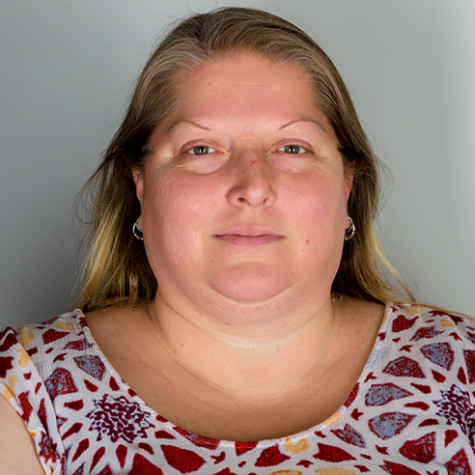In early January this year my father chose to go into hospice care at home. As his only child, I’m his primary caretaker.
No one expects the loss of a loved one to be easy, but I was surprised the ways it would be hard to care for someone in hospice, especially when it lasts more than a couple weeks. It affects my entire life, and it’s impossible not to have selfish thoughts and feelings.
What first caught me off guard was the stream of people flowing through the house. Hospice workers came to establish home care, nursing visits and to counsel both Dad and me. Then friends and family descended upon us on the same day.
Of course they want to spend time with Dad while he’s still with us. I want them to as well. But I’m used to our home being a quiet refuge, and a little company goes a long way. It might have been easier had it just been a few people at a time, but instead they arrived all packed into one car along with two big dogs. More than once I turned people away, not for Dad’s sake, but for my own.
Dad was diagnosed with Cholangiocarcinoma two-and-a-half years ago. Most of his doctors expected he would die within weeks or months, even with chemotherapy. Apparently he’s something of a miracle to have survived this long. But infections have weakened his body too much to endure another round of chemotherapy, and the cancer has taken over. Even when actively dying, Dad’s taking his time.
I love my dad. I owe him so much more than I can ever repay. I want him to get better. I want him to be around. And I wish he’d get it over with and die already.
Much of my life is on hold while I care for Dad. I’m taking only two classes. I’m not attending meetings or get-togethers and my love life is at a standstill.
Spending more than an hour or so away from Dad means getting someone else to sit with him in case of emergency. I lean heavily on one neighbor for help, and I can’t ask her to do more.
Dad doesn’t want to be a bother, so he waits until I’m already getting up to ask me to do something for him. The problem is, when I get up, it’s to do something I’ve planned. His requests sidetrack me; sometimes to the point where I can’t get anything done. It makes me crazy how his attempts not to disturb me do the exact opposite. But I don’t want him to feel he’s imposing, so I work extra hard to be chipper.
Dad’s also stubborn. He decides to do something, gets out of bed and goes off to do it without a word. He rolls past me on his mobility scooter and next thing I hear is him thumping over the threshold going outside. There’s nothing he can do there without putting himself at risk of injury.
I don’t want to hover over him, but I don’t want him to get hurt. Inevitably I do hover, trying to talk him out of whatever pointless project he’s taken on. More often I make him let me do whatever he’s trying to accomplish. I’m glad he feels well enough to try, but it makes me grind my teeth in frustration.
As Dad’s sole heir, the 1930s Craftsman style house we live in will be mine when he dies. Dad’s interior decorating style has always been “whatever functions.” I can’t help but think about the changes I’ll make. I’ve already purchased new light fixtures for the living room. I’m collecting paint chips and flooring samples. I picture how the dining table I’ve kept in storage for several years will look in place of the scroungy computer desk. I feel like a vulture, imagining how I will make the house mine when Dad is gone. I feel greedy and grubbing, but I still can’t help it.
I talk about these things with friends who’ve been there and they tell me it’s normal. I’ll hold onto that while I spend these last precious days with my dad.




Cecilia Senocak • Apr 24, 2016 at 2:36 pm
Thank you so much for expressing this. When I read it in my copy of the Oak Leaf, I was struck by how much I appreciated hearing this side of death and loss conveyed. I lost my mom 4 months ago and found it such a quiet and hard experience, unrevealed in our culture.